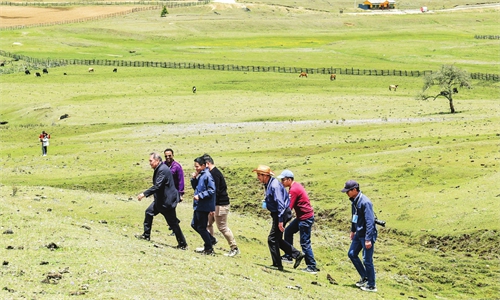
A local folk dance group performs during the 2024 "Chinese Farmers' Harvest Festival" celebration in Qiongjie county, Shannan, Southwest China's Xizang. Autonomous Region, on September 22, 2024.
Over the past few decades, Southwest China's Xizang Autonomous Region has borne witness to a transformation as profound as the peaks that cradle it.Nowadays, on the high plateau, economic strides empower the humble, education ignites young dreams, healthcare heals with compassion, and verdant hills stand as sentinels of a brighter, greener future.
Life in Xizang is like Gesang flowers in full bloom in the New Era.
All-round and historic progress has been made in human rights cause in Xizang region, according to a white paper released on Friday. The document, titled "Human Rights in Xizang in the New Era," was released by the State Council Information Office at a press conference held in Lhasa, capital city of the region.
Today, Xizang enjoys political stability, ethnic unity, economic development, social harmony, and amity among different religions. Its environment is sound, and local people are content with their work and daily lives. This progress represents a remarkable achievement in protecting human rights on the snowy plateau, it said.
Since the 18th National Congress of the Communist Party of China in 2012, Xizang has carried out an array of measures to alleviate and eradicate poverty. By the end of 2019, all 628,000 registered impoverished people in the region had been lifted out of poverty, the white paper said.
Xizang has also become one of the regions with the healthiest eco-environment in the world, where the protection of the people's environmental rights has been steadily upgraded, said the document.
Nowadays in Xizang, boarding schools provide accommodation service and covering all the boarding, lodging, and basic study expenses for the pupils in some schools. Students and parents can choose if they wish to board at schools and students can go home during weekends and holidays.
In healthcare, teams of medical personnel providing structured aid have greatly enhanced Xizang's medical service capabilities. Improvements are not only in hardware but also in the training of local medical talent, benefiting the region's residents.
"In the past, women from local herding communities did not usually give birth in hospitals, but now people are more willing to come to the hospital because they are safer, more reliable, and more hygienic. People also have more faith in hospitals," Zhao Yi, director of the Obstetrics and Gynecology Department at Nagqu People's Hospital and who is originally from Liaoning Province, told the Global Times.
Xizang is open to the world, and the region welcomes foreign friends to visit and travel and foreign journalists to conduct interviews, Xu Zhitao, deputy head of the regional government, made the remarks at the press conference on the release of a white paper on Friday.
He said that Xizang received approximately 320,000 foreign tourists in 2024 and the region would quicken its opening up and continue to improve conditions for foreigners visiting Xizang in line with changes in the region's reception capacity and infrastructure development, he said.
This year marks the 60th anniversary of the establishment of Xizang Autonomous Region.
On March 28, 1959, people in Xizang launched the democratic reform, freeing a million serfs. In 2009, the regional legislature announced March 28 as the day to commemorate the emancipation of the one million serfs.
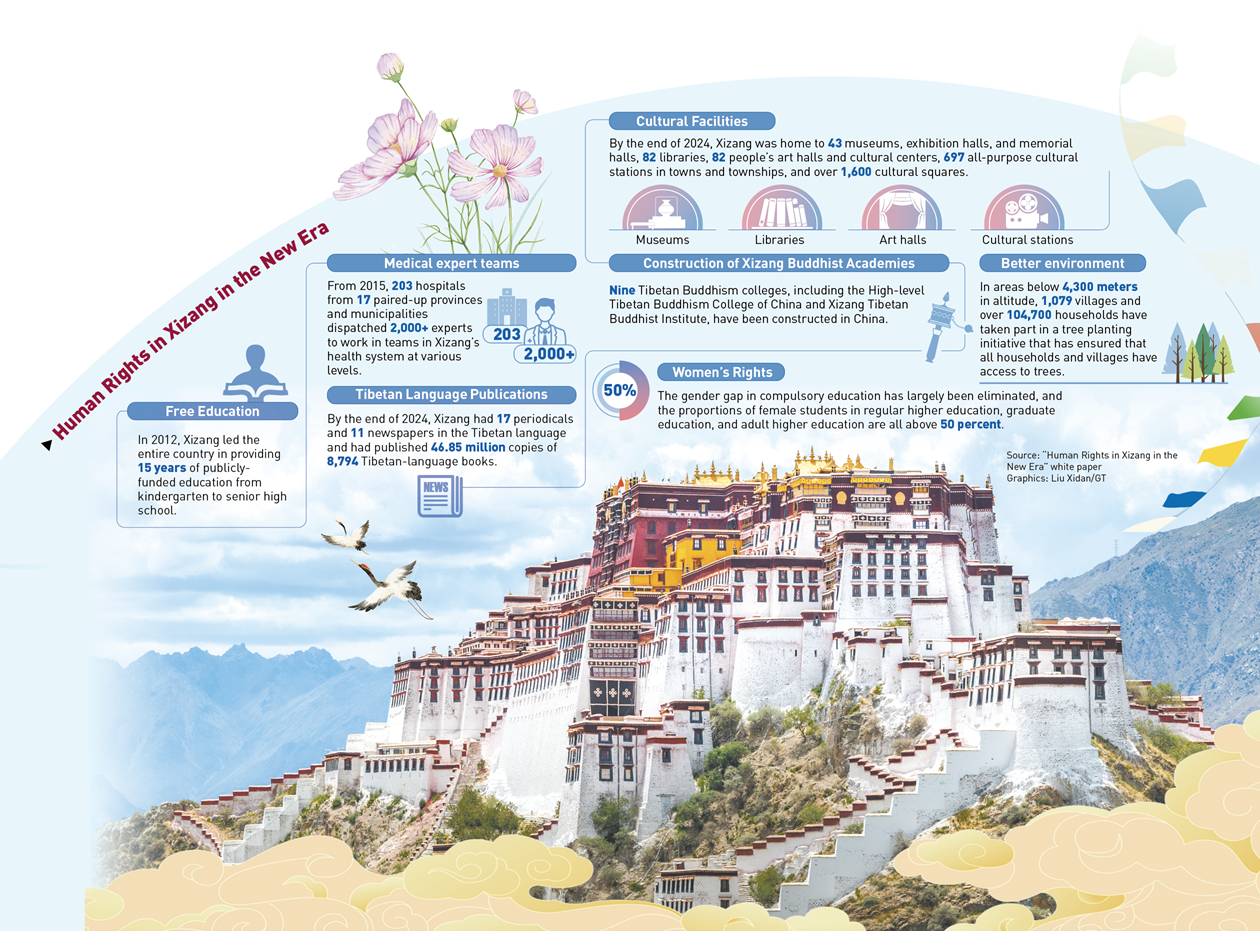
Global Times
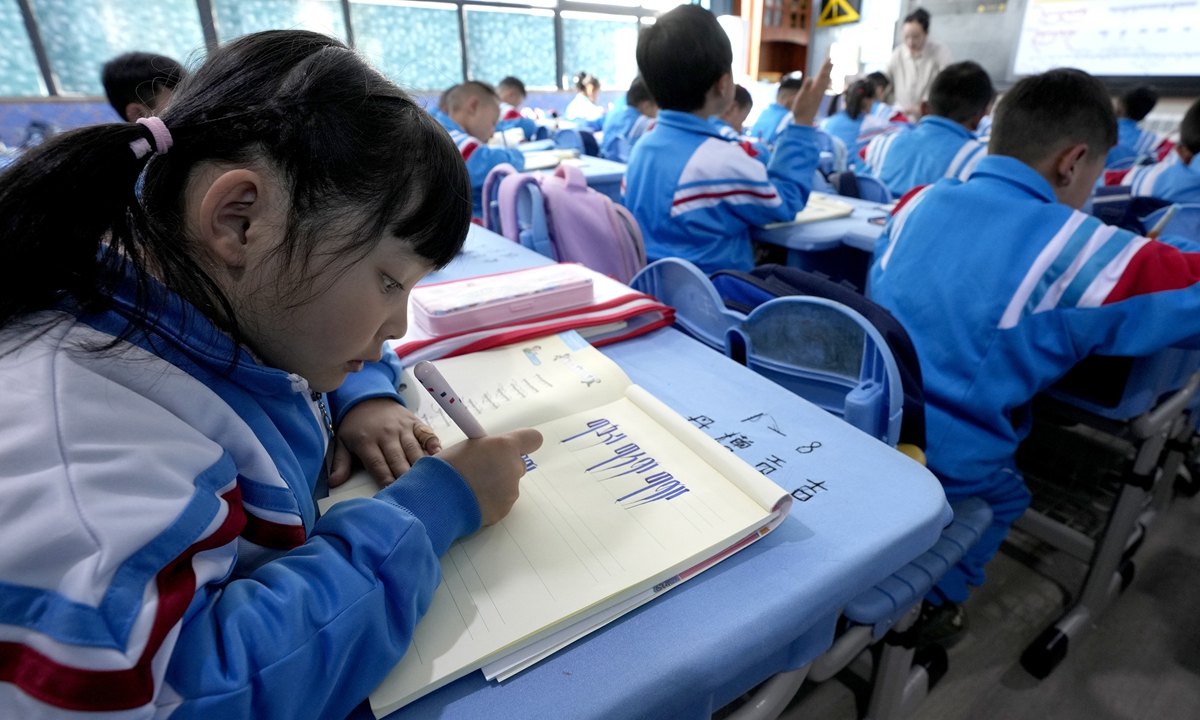
Students of Lhasa No.1 Primary School in Lhasa, Southwest China's Xizang Autonomous Region attend a Tibetan language class on March 10, 2025.
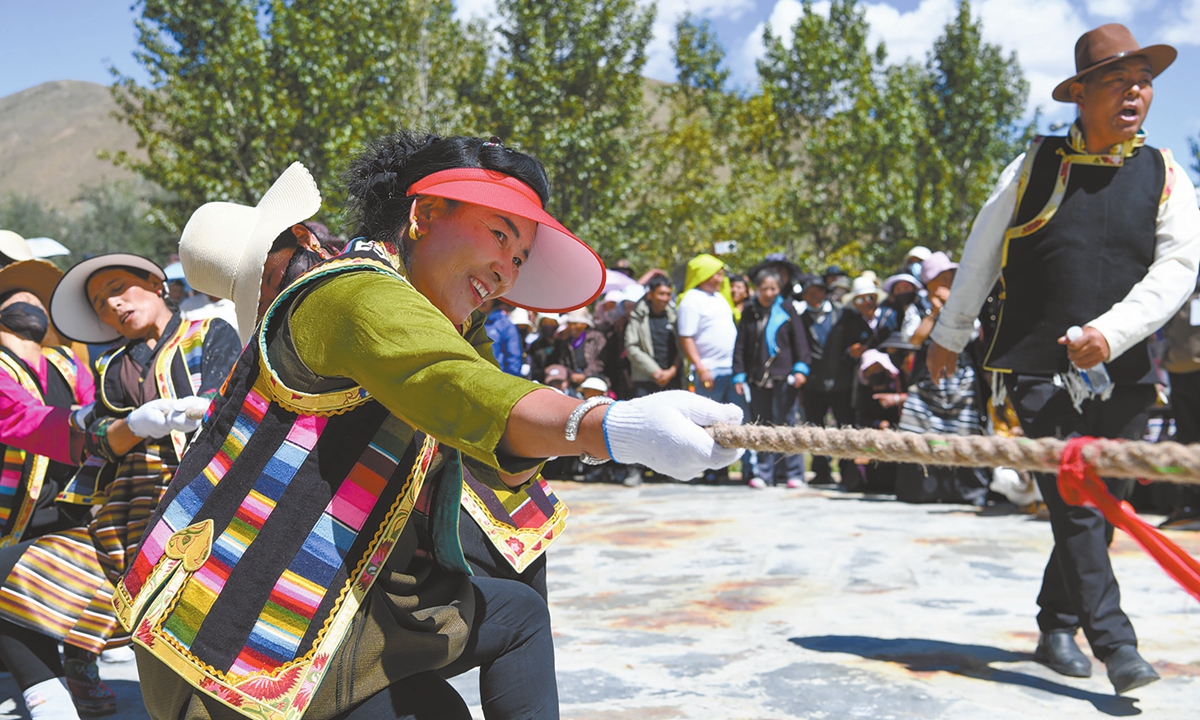
People play games at the 2024 "Chinese Farmers' Harvest Festival" celebration in Qiongjie county, Shannan, Southwest China's Xizang Autonomous Region, on September 22, 2024. Photos on this page: VCG
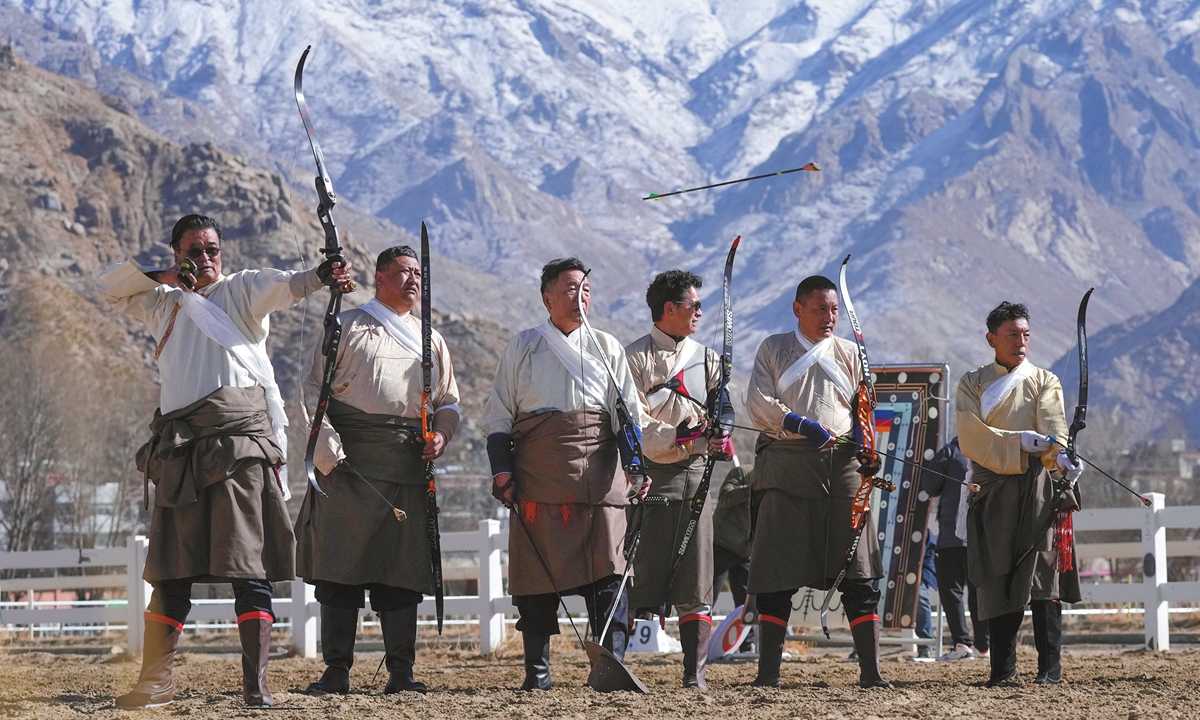
A traditional equestrian performance and ethnic horse racing event takes place at the northern suburb racecourse in Lhasa, Southwest China's Xizang Autonomous Region, to celebrate the Tibetan New Year on March 2, 2025.
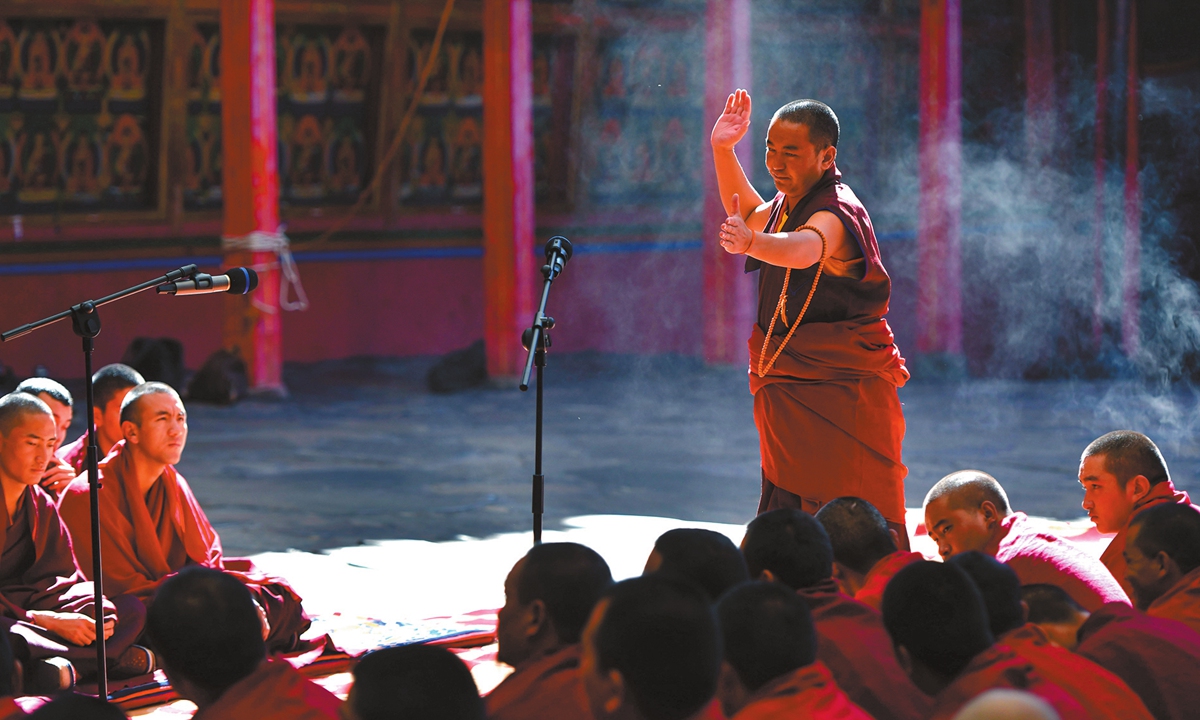
Monks engage in a debate at the Tashilhunpo Monastery in Xigaze, Southwest China's Xizang Autonomous Region, on September 19, 2024.
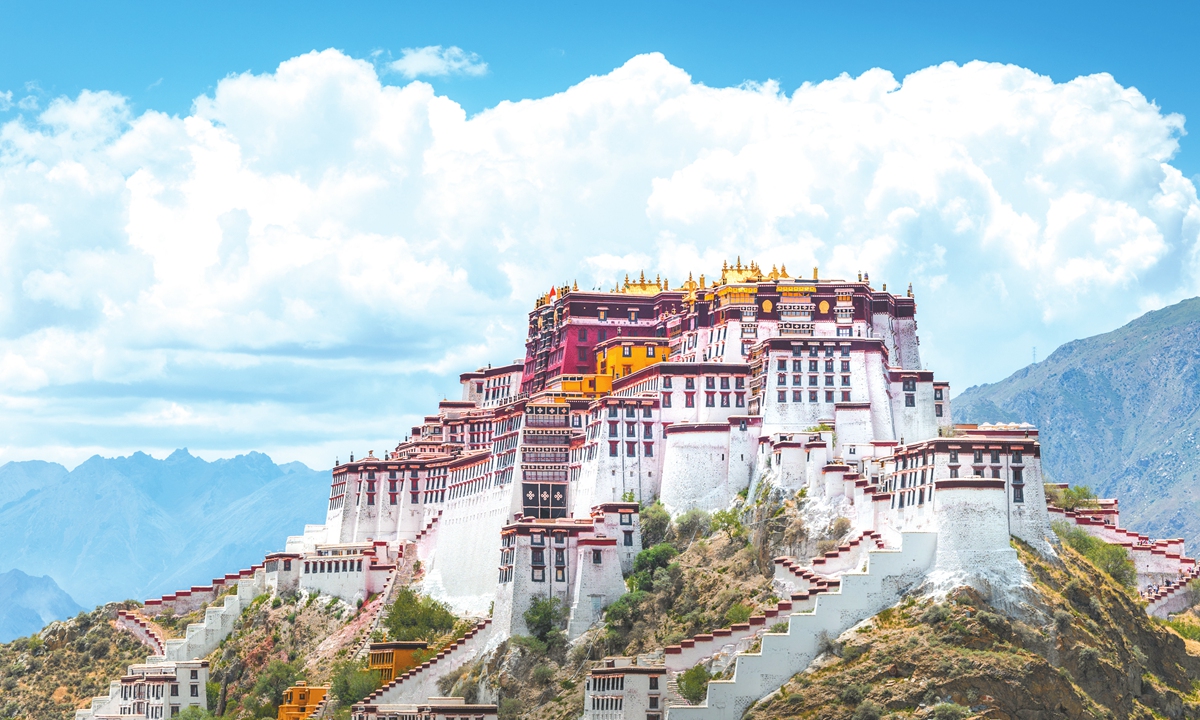
The view of the Potala Palace in Lhasa, Southwest China's Xizang Autonomous Region



